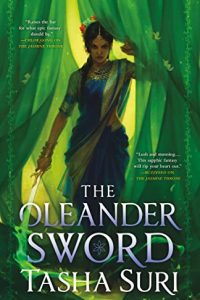Karen Burnham Reviews Short Fiction: Shimmer, Clarkesworld, and Lightspeed
 Shimmer 11/18
Shimmer 11/18
Clarkesworld 11/18
Lightspeed 12/18
As we say goodbye to 2018 we also bid a fond farewell to Shimmer, as their 46th issue is their last. After 13 years of publication they go out in style with a 12-story triple issue that showcases the wide range of genre fiction that found a home between their covers over the years. It starts strongly with “Rotkäppchen” by Emily McCosh, and you don’t need to be too familiar with German before its source material becomes clear. An older woman is bereft when her grown son is mauled to death by a supernatural bear, leaving behind a wife and child. She returns to her home when a wolf comes to her door, but they’ve obviously known each other for years. As the wolf communicates with her indirectly via stories, she starts to arrange her affairs. I appreciated the continuation of the fairy tale, the deep sense of feeling between the woman and wolf, and the badger references. “40 Facts About the Strip Mall at the Corner of Never and Was” by Alex Acks couldn’t be more different. Told in list style, its character is clearly the titular strip mall, developed through notes about its history and the denizens that run the costume shop, the candy shop, the ex-mattress store, closed payday lender, etc. This is a story that imbues suburban ruins with as much Weirdness as fairy tale forests. The fae are never far as “Antumbra” by Cory Skerry tells the story of teen twins, getting ready to move once again as their parents are obviously running from something. Skinny, gay, introverted Jasper, our narrator, starts to piece things together as he’s out on one last adventure with his popular, straight brother Jesse. The story unfolds steadily, flirting with horror and culminating with a very moving twist for Jasper when the moment his parents have been dreading finally arrives.
A.C. Wise takes things in a different direction in “The Time Traveler’s Husband“, using the classic SF trope to gender-flip a romance trope, with the husband staying home, never knowing when his wife will arrive, what state she’ll be in, or when she’ll disappear. He’s confronted by his father’s excessively toxic masculinity, making his relationship with his wife even more fraught. It’s a very moving portrait of the man and the challenges he navigates between his different worlds, as well as what he and his wife mean to each other. Another story making good use of the time travel trope is “Tyrannacora Regina” by Leonie Skye. We first meet Cora in Portland in 2057 at a roller derby. From there the story travels back and forth between Cora’s past, present, and future (which is also her past). We learn about her origins as the product of a scientific experiment, and how she’s forged a life for herself since escaping – and what she finds when she’s drawn back. The worldbuilding that allows this future to come into being is only lightly sketched in, but Cora’s journey is rightly front and center, and memorably intense.
I was struck by the way this swan song issue moved from the fantastic to the science fictional as it reached its closing pages. Sarah Gailey, who is emerging as a striking new voice, provides “From the Void“, an intense (and I realize now that, more than anything else, a certain intensity of feeling might be the defining characteristic of a Shimmer story, aside from any genre considerations) story of a lone survivor on an interstellar spaceship which has succumbed to an evocative plague (lungs turn to feathers, which are then coughed up). Judith is a priestess and dedicates her remaining days to giving proper funerals to all the crew; as she works at her macabre task we learn about the ship’s final days, and of the fate of her best friend and their fraught relationship. “Thistledown Sky” by Stephen Crane is something you don’t read every day: an SF pastoral centered on the parents of a woman who is leaving on another interstellar starship. The parents remain home in the Midwest while their daughter transforms into an immaterial being largely unaffected by gravity before she leaves. There’s commentary on how different individuals and communities relate to this new technology; the wife is largely in denial and there’s an interesting dialog with a First Nations neighbor, but my takeaway is a sense of a transcendent mission that not all can follow.
Finally, the honor of the last story goes to Wren Wallis and “Ghosts of Bari” and it is well chosen. Scavengers find the intact remains of an ancient warship, the crew all long and peacefully dead. The ship’s computer has largely been overwritten by a single poem telling their tale, and there’s a sigil at the entrance that entreats the visitor to “Listen.” A story that begins with the potential for horror instead becomes something uplifting. When words are all that remain, sometimes that is enough and it commands respect. These final three stories bring us endings and their witnesses, and while Shimmer itself may be coming to an end, the authors that found their beginnings and their voices there will enrich the genre for decades to come.
November’s Clarkesworld leads off with a fun story by Rich Larson, “Octo-Heist in Progress“, filled with cyberpunk-ish slang. A young woman has left her sister’s shoes under the bed of a guy who was hosting a house party in his parents’ mansion. She brings in a biohacker to help her get the shoes – in the process, she also gains access to the parents’ safe. A remotely controlled organic octopus is meant to do most of the work in this caper, but when Pico takes matters into his own tentacles, hijinks ensue. As is so often the case in cyberpunk stories, a little compassion goes a long way. “What the South Wind Whispers” by H. Pueyo is a story of an autistic transgender man and his AI assistant. They are maintaining a station that protects a swath of South America from cometary bombardment. When he is joined by another autistic colleague, tensions between the three characters quickly escalate, with ulterior motives coming to the fore. The strongest story of the issue is Nina Allan‘s “The Gift of Angels: an introduction“. This is framed as the introduction to a popular author’s memoir and describes him visiting Paris, where his parents met. His mother was an astronaut who went to Mars when he was young, but the story-essay is a meditation on history, criticism, art, and their resonances, with a motif being the relationship between a French film, La Jeteé, and the American film somewhat based on it, 12 Monkeys. This concern for the intersection of art and life, and particularly film, will be familiar to those who read Allan’s collection Stardust: The Ruby Castle Stories (2013), and also to those who read Allan’s insightful film criticism in various venues. This story is both illuminating about broad themes and intensely personal when it comes to the character/author himself.
December’s Lightspeed brings us its usual mix of SF and fantasy, with the centerpiece and cover story being a novelette by Ashok K. Banker that kicks off a new epic fantasy series from the Indian writer. “A Love Story Written on Water” brings us the origin story of the eventual hero, focusing on his parents and their fairytale romance. A river goddess falls in love with a man who is reincarnated as a great king, and asks him to marry her on the condition that he never ask anything about her or challenge anything she does in any way. They’re happily married for years, despite his never knowing her name or why she drowns their first seven children in the river the day that each is born. He finally saves the eighth child, even though it costs him his wife, and I appreciated that their story gets a denouement separate from the child’s story, about which I suspect we’ll learn much more in future installments.
In the science fiction section, “Mouths” by Lizz Huerta features a near future post-apocalypse. Fai leaves the Mexican coast and travels inland to find a dentist after an accident leaves her with horrible dental pain. He fixes her up in exchange for her work for a period of time, and she becomes something of his apprentice. The descriptions of how dental practice would work, as well as Fai’s calculations about her continued service with him and his feelings about her are all well and vividly drawn. The ending takes an effective turn to the surreal. Huerta is a new voice that I look forward to seeing more from in the future. Coming from a more established author, Seanan McGuire‘s “Under the Sea of Stars” is a Jules Verne-ian offering featuring a young woman fulfilling a charge from her grandfather who once found a mermaid-like creature and promised to find her origins. The protagonist organizes an expedition and succeeds in finding an unsuspected deep underwater cavern complex in England, but what she finds is not what she expected. Complete with a frame narrative (revealed only at the end) that explains how the first-person document came to be published, this is a great blend of adventure and creepiness in the late 19th-century style.
Recommended Stories
“The Gift of Angels: an introduction”, Nina Allan (Clarkesworld 11/18)
“From the Void”, Sarah Gailey (Shimmer 11/18)
“Mouths”, Lizz Huerta (Lightspeed 12/18)
“Tyrannacora Regina”, Leonie Skye (Shimmer 11/18)
“Ghosts of Bari”, Wren Wallis (Shimmer 11/18)
Karen Burnham is an electromagnetics engineer by way of vocation, and a book reviewer/critic by way of avocation. She has worked on NASA projects including the Dream Chaser spacecraft and currently works in the automotive industry in Michigan. She has reviewed for venues such as Locus Magazine, NYRSF, Strange Horizons, SFSignal.com, and Cascadia Subduction Zone. She has produced podcasts for Locusmag.com and SFSignal.com, especially SF Crossing the Gulf with Karen Lord. Her book on Greg Egan came out from University of Illinois Press in 2014, and she has twice been nominated in the Best Non Fiction category of the British SF Awards.
This review and more like it in the January 2019 issue of Locus.
 While you are here, please take a moment to support Locus with a one-time or recurring donation. We rely on reader donations to keep the magazine and site going, and would like to keep the site paywall free, but WE NEED YOUR FINANCIAL SUPPORT to continue quality coverage of the science fiction and fantasy field.
While you are here, please take a moment to support Locus with a one-time or recurring donation. We rely on reader donations to keep the magazine and site going, and would like to keep the site paywall free, but WE NEED YOUR FINANCIAL SUPPORT to continue quality coverage of the science fiction and fantasy field.





